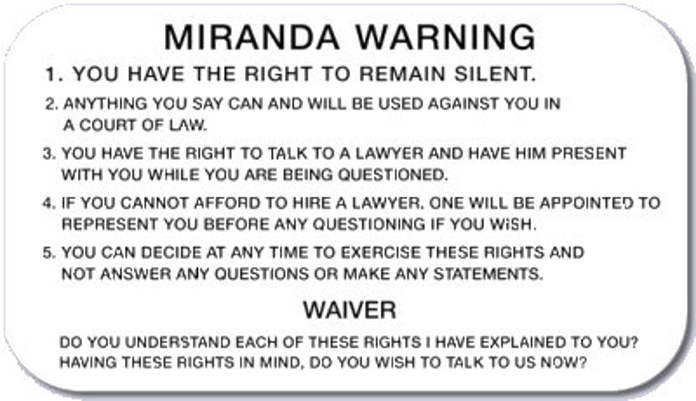Now that you know the basics of the domestic relations court’s role, let’s look at some common questions that I hear from family law clients. Bear in mind, the answers to these questions cannot be construed as legal advice because, although there are general answers to these questions, every domestic relations case is fact-intensive and the answer to the question may change, given the right set of facts and circumstances. Additionally, it is crucial to know the propensities and views of your local domestic relations jurisdiction. The judge is deciding your case based on principles of fairness, equity, and what constitute a child’s best interests.
1. Should I move out, or will that be considered abandonment?
I generally advise clients that if they want to be divorced, it is imperative that they separate. A divorce action is a lawsuit. If being married to a person is impossible, try living with a person against whom you have a pending lawsuit. It doesn’t work. There is hostility. There is friction. Parties need to separate.
In the years in which I have tried numerous domestic relations actions, I cannot recall an attorney lodging a claim of “abandonment,” simply because someone moved out. If you move out, it is best to arrange to take the children with you, or if that's impossible, visit with them as much as possible. It is best if parties can separate, and even better if they can separate amicably. If you have been amicably separated for any period of time prior to filing the divorce, your separation will save you time and money in attorney’s fees. The court doesn’t want to be in the position to determine “who is more worthy of living in the marital residence” or “who is the better parent.” The court would much rather the parties decide. When the divorce is filed, rather than spend hundreds of dollars per hour disputing these issues, the court will prefer to maintain the status quo. If you can decide who is in the better position to move out and can decide who will be the children’s primary caregiver (hint: who has been the primary caregiver?), your divorce case will be less stressful because of it.
2. Should I be the first to file for divorce?
In a divorce, there is a plaintiff and a defendant. When the plaintiff files a Complaint, the defendant has 14 days to respond to the plaintiff's Request for Temporary Orders (think temporary custody and temporary spousal support); the defendant also has 28 days to file an Answer to the plaintiff's Complaint. If, down the road, the plaintiff doesn’t like the way the case is going, the plaintiff can dismiss its case. Therefore, I recommend that my client file a Counterclaim for divorce. A Counterclaim is in essence, a Complaint, to which the plaintiff must also file an Answer. It is a little more expensive but can pay dividends under the right circumstances. Generally speaking, it does not matter who files first, because if there are grounds for divorce, the court will eventually issue a divorce decree. Once the divorce has commenced, attorneys and courts pay little attention to who filed the Complaint.
All this being said, there is a consideration for being “first to file.” The reason to file first is purely strategic: once the divorce is commenced, the first person to lodge the allegations can better control the narrative. The Complaint immediately puts the defendant on the defensive. Allegations set forth in affidavits to the divorce require a response from the defendant. The defendant must first concentrate on rebuffing the allegations before lodging allegations of his or her own. Additionally, it is possible that the court might develop an opinion about the merits of the allegations during the first weeks that the case is pending. However, any perceived advantage to filing first will evaporate as the real issues in the case emerge.
3. What if I don’t want to get divorced?
There are grounds for divorce set forth in R.C. 3105.01. If any of those grounds is satisfied, the divorce will issue. Sometimes, a person may have a religious or personal aversion to having a divorce. I would not advise spending an abundance of time or money - at least, not on attorney's fees - trying to "stop" the divorce. However, you should be aware that upon agreement of the parties, the court will "stay" the divorce proceedings for a reasonable period of time for the couple to reconcile their differences. If you are opposed to a divorce, you could file a Counterclaim for a legal separation, instead. In a legal separation, all issues relative to a divorce are decided, but at the conclusion, the parties remain married. There can sometimes be legal benefits to remaining married, such as preservation of employer-provided medical insurance. However, the legal separation could later be used to achieve a divorce.
4. Should I buy a do-it-yourself dissolution kit online?
Although I am not familiar with the online kits, I hear they retail for approximately $300. I have also heard horror stories about their being rejected by courts for the parties’ failure to properly file the dissolution. Of greater concern, assuming a dissolution kit is approved by the court, the party may have agreed to a dissolution decree that has unforeseen consequences. The party may have passed on a viable claim for spousal support, may have a lopsided division of marital assets, or not included the proper language to protect oneself in the event the opposing party later files a bankruptcy on debt in the party’s name. The value of having an attorney is not completing the paperwork, but having knowledgeable legal counsel in your corner. And if paperwork is all you're after, it’s worth mentioning that I have fixed multiple dissolution kit disasters by having to start from scratch with the client. Nonetheless, if you feel adventurous, made good grades in school, and can follow directions, you may successfully file your own dissolution. At the bare minimum, find an attorney who will do a low-cost consultation to get some sense of whether you are headed down the right path.
5. Should I file for a civil protection order?
If you are the victim of domestic violence or menacing by stalking, you can file for a protection order. The definition of domestic violence and the process for obtaining a civil protection order is located in R.C. 3113.31 and a civil stalking order in R.C. 2903.214. Sometimes, an individual might use a civil protection order to attempt to gain exclusive control of a residence or get temporary custody of children. I would counsel anyone against getting a civil protection order solely to gain an advantage in a divorce action. Courts are aware that parties engage in this sort of behavior, and are attuned to such situations. However, if you are the victim of domestic violence you should seek a civil protection order.
6. Should I agree to shared parenting? How can I get shared parenting?
It is impossible to recommend shared parenting without an in-person consultation. This question is common, and it usually accompanies a perception that “shared parenting” means a 50/50 split of parenting time. Perhaps one week on, one week off. “Shared parenting” is actually the legislature’s provision for parents to work together toward making important parenting decisions as they relate to their children. Shared parenting ultimately requires the court to approve a “Shared Parenting Plan.” The plan makes a number of provisions relative to issues such as parenting time (also known as “visitation”), but also where the child(ren) will attend school, how decisions concerning medical and religious issues will be carried out, and more. It is designed to provide flexibility so that one parent isn’t simply the “residential parent” (or “custodial parent”) while the other parent simply gets local rule “parenting time” (or “visitation”).
7. How can I make sure the other party gets supervised visitation?
Courts see the importance for both parents to be involved in a child’s life. Therefore, supervised visitation is a very restrictive means of exercising parenting time. Supervised visitation may be appropriate if a parent has not spent meaningful time with a child for an extended period and it would be appropriate to slowly re-introduce parenting time on a graduated basis. In that instance, the supervised visitation may be appropriate for a temporary period, until the concern relative to lack of bond is abated. If drugs, alcohol or abuse have a substantial impact on the child, it is possible that supervised visits could be ordered; however, a court might have a preference to introduce specific court orders to prevent these concerns from harming the child. For example, rather than order supervised visitation, the court might order that the parent “shall not be under the influence of illicit drugs or alcohol during parenting time.” If drugs or alcohol remain an ongoing concern after such a provision, then the court might resort to more restrictive means on the motion of the other parent. Domestic Relations courts usually shy away from having supervised visitation in place for substantial periods of time.
8. Why should I pay child support if I don’t get to see my kids?
I counsel with many individuals, usually in a paternity/child support case, where a parent has been absent from a child’s life for an extended period of time. Oftentimes, the parent feels like they were shut out of the child’s life, whether rightly or wrongly. It’s important to understand that the issues of child support and visitation are mutually independent of one another. A parent with visitation rights may exercise those rights, irrespective of whether the parent is current on child support. Conversely, a parent is obligated to pay child support, regardless of whether the parent actually exercises visitation with the child.
Most importantly, parties tend not to realize that it is relatively easy for an attorney to establish their visitation rights. Because a parent has a paramount right to be involved in the life of the child, a parent should very easily establish visitation, absent circumstances involving abuse or similar concerns. Therefore, for a relatively low fee, a parent who is legally obligated to pay support for their child may also seek to visit with that child. Rather than angrily withhold payment of child support and subject oneself to a contempt action and possible jail, the parent is empowered to know that they can see their child, even if they cannot always make their child support payments. Failure to provide support and to have visits with the child for more than a year may subject an individual to loss of parental rights and responsibilities through adoption proceedings, as well.
9. What are grandparents’ rights? Can I get custody of my grandchild?
If a parent is “suitable” or fit to be a parent, the parent has a paramount right to custody of the child against third party non-parents (such as grandparents). There are two ways for a grandchild to go into the custody of a grandparent: 1) by uncontested agreement of both parents; 2) by parental unsuitability of both parents where placement with the grandparent is the child’s best interests. Parents may be found unsuitable where there is abandonment, contractual relinquishment of custody, the total inability to provide care or support, or that the parent is otherwise unsuitable that is, that an award of custody would be detrimental or harmful to the child. In the event that a child has lived with a grandparent for a sustained period of time, that grandparent may develop standing to assert themselves as a party in a domestic relations court action concerning the allocation of parental rights and responsibilities.

 Should I Pay the Waiver?
Should I Pay the Waiver? Felony THC Possession
Felony THC Possession Forming an LLC
Forming an LLC Anatomy of a DUI Case
Anatomy of a DUI Case A Criminal Case: From Arraignment to Trial
A Criminal Case: From Arraignment to Trial Winning a Social Security Disability Case
Winning a Social Security Disability Case 6 Questions About Chapter 7 Bankruptcy
6 Questions About Chapter 7 Bankruptcy 8 Reasons to Have a Will
8 Reasons to Have a Will 9 Divorce and Custody Questions
9 Divorce and Custody Questions Issues Considered in a Domestic Relations Action
Issues Considered in a Domestic Relations Action A Step by Step Guide to Search and Seizure
A Step by Step Guide to Search and Seizure You Have the Right to Remain Silent: Exercise It!
You Have the Right to Remain Silent: Exercise It! A Guide to DUI
A Guide to DUI Ohio Law Bans Red Light Cameras, Cities Sue
Ohio Law Bans Red Light Cameras, Cities Sue Sex Offender Fails to Disclose E-Mail: Prison
Sex Offender Fails to Disclose E-Mail: Prison Plea Deal Rules that Limit Advocates' Judgment
Plea Deal Rules that Limit Advocates' Judgment Private Universities’ Police Records are Public
Private Universities’ Police Records are Public NFL Players Prevail over Cleveland's Tax Practices
NFL Players Prevail over Cleveland's Tax Practices